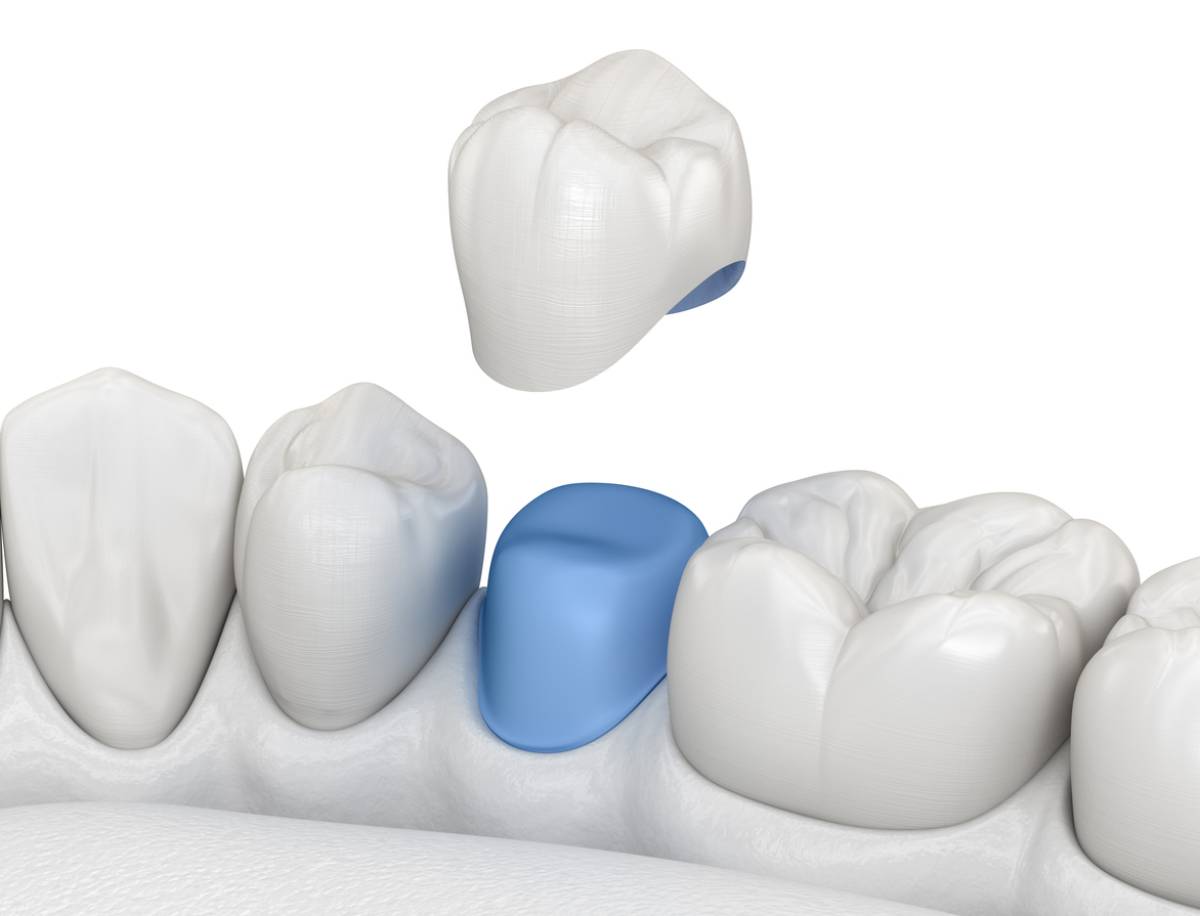Dental crowns are an effective restoration solution that helps save teeth weakened by decay or trauma. But how long do they last, and is it common for dental crowns to fall off? In this article, we address this question and give tips on dental crown care.
Is It Common for Dental Crowns to Fall Off?
If a dental crown is placed correctly and sealed, it should not fall off unless trauma occurs or the crown is too old. Depending on the material they are made of and your care habits, dental crowns typically last for 7 to 15 years. A secure dental crown placement consists of the following steps:
Tooth Preparation
The tooth must be filed down to create space for the crown while preserving enough of the tooth’s structure to maintain its strength. Additionally, decayed pulp, weakened enamel, or defective fillings must be properly removed to prevent infections beneath the crown. Then, the tooth is shaped with a slight taper (typically, around 6°) and smoothed at the edges so the crown can remain secure.
Precise Impressions
A physical mold or digital scan is done to understand the exact shape of the prepared tooth and the surrounding teeth. The precision of the impressions is essential, as it enables the technician to prepare a crown of the correct size and shape.
Tooth Surface Preparation
Before placing a permanent crown, your dentist must ensure that saliva, blood, or debris are removed from the tooth and that it is clean and dry. Otherwise, the subsequent bonding and cementation are likely to fail, or infection can occur underneath the crown.
Comfort and Fit Checks
Before the crown is permanently bonded to the tooth, your dentist will check its fit and margins using dental explorers and X-rays, if necessary. Also, the bite is checked to ensure there is no excess pressure and the crown fits comfortably among the rest of your teeth.
Cementation
Dental cement is used to bond the crown to the tooth. After the crown is bonded, the excess cement is removed to prevent gum irritation. At this stage, your doctor has to ensure that the crown sits securely and is tightly sealed to prevent bacteria from accessing the tooth.
Tips on How to Make Your Crowns Last
Even a properly and securely placed crown can potentially break or fall off if you are not careful with it. We recommend following several tips to prevent dental crown damage or loss.
Be Mindful of What You Eat
Having a dental restoration comes with some dietary restrictions:
- Hard or crunchy foods that can lead to your crown cracking, chipping, or dislocating
- Sticky foods (can also cause crown dislocation)
- Additionally, we recommend avoiding staining foods and drinks. They will not cause your crown to fall off, but they can cause it to change color.
Do Not Use Your Teeth as Tools
Using your teeth as tools for opening bottles, cracking nuts, etc., can easily cause your crown to chip, break, or dislodge, and also damage your natural teeth.
Address Bruxism if Present
Bruxism is a condition characterized by involuntary teeth grinding and jaw clenching. It is most common at night, but can also occur throughout the day. Since the human bite is very powerful, bruxism often leads to damage to teeth and dental restorations.
If you notice signs of bruxism, consult with your dentist about available treatments and wear a night guard to protect your dental crowns and natural teeth from damage.
Get High-Quality Dental Crowns at Absolute Family Dentistry
Do not hesitate to make an appointment with an experienced dentist at Absolute Family Dentistry today. Our specialists utilize high-quality materials and state-of-the-art techniques to provide our clients with high-quality and long-lasting dental crowns.


